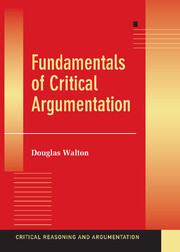SEVEN - RELEVANCE
Published online by Cambridge University Press: 05 June 2012
Summary
In chapter 5 it was shown how replies to questions can be irrelevant, but there is a still more general problem about relevance concerning argumentation. How can arguments, or any moves in a dialogue, for that matter, be judged relevant or irrelevant? This problem is a central one for critical argumentation because many of the emotional appeals commonly used in argumentation, such as appeal to pity or fear or ad hominem arguments, are fallacious because they are irrelevant arguments. They are powerful tactics of distraction that work to throw an arguer off the trail, creating distractions and confusion by arousing powerful emotions. However, appeals to emotion are not always fallacious. Sometimes they are relevant. So there is a problem of judging in any given case when such an appeal should be considered relevant or not. While argumentation schemes are helpful for this purpose, judging relevance often means one also has to examine a more lengthy chain of argumentation in a dialogue. As indicated in chapter 1, a sequence of argumentation in a dialogue should always have a particular proposition it is ultimately aimed to prove as its target. Its target is the issue that the dialogue is supposed to settle. In a critical discussion, the chain of argumentation is aimed at proving or casting doubt on some particular proposition at issue in a dialogue.
- Type
- Chapter
- Information
- Fundamentals of Critical Argumentation , pp. 266 - 298Publisher: Cambridge University PressPrint publication year: 2005



